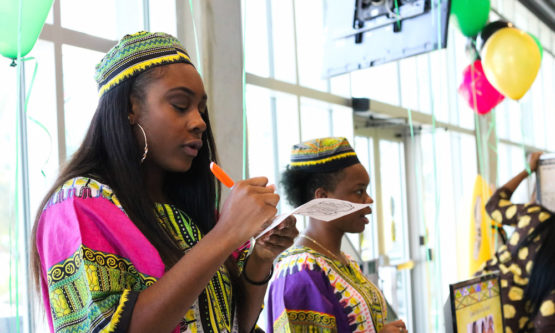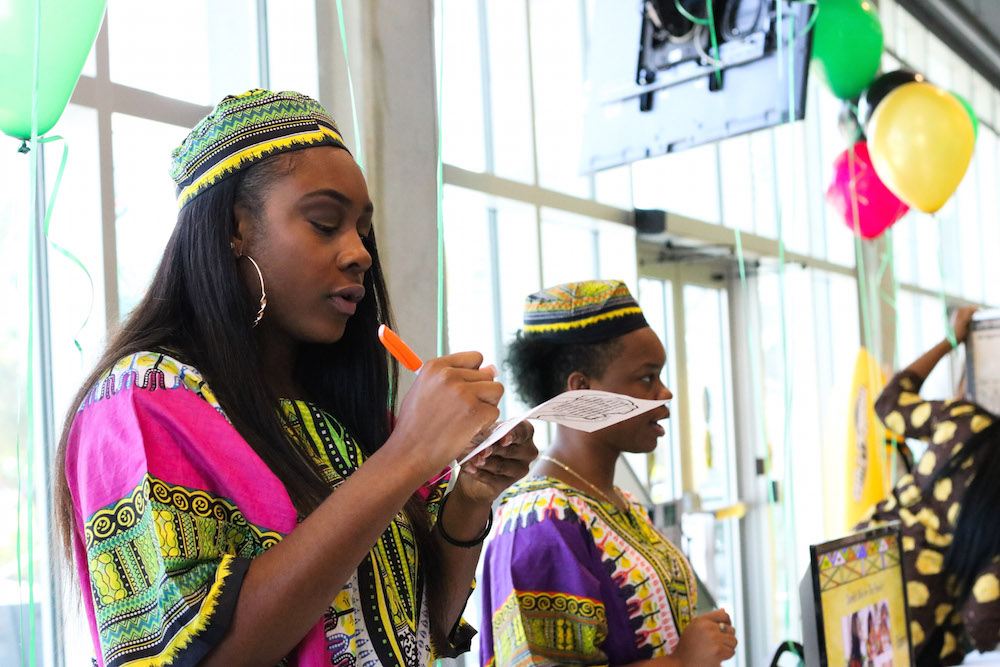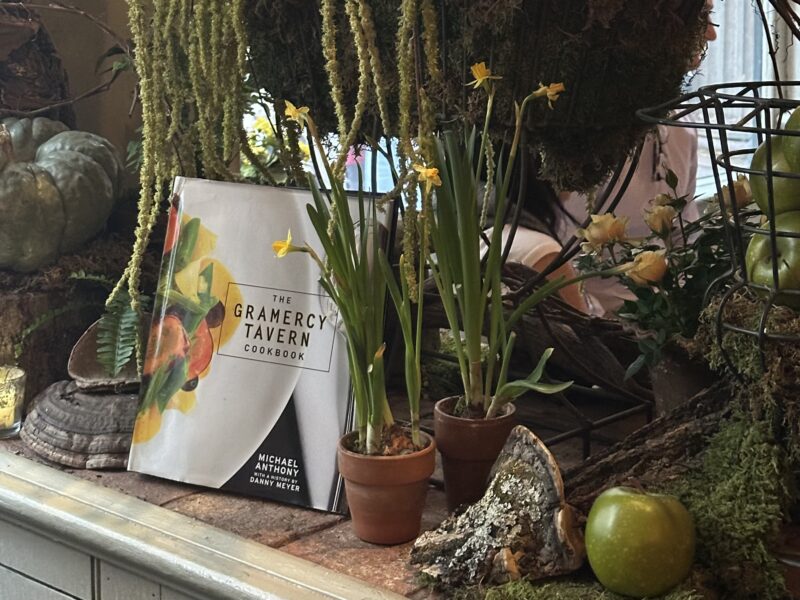The Dashiki is an essential part of African culture but often utilized, especially during Halloween, as a costume for an insensitive trick-or-treater or partygoer.
The Black Student Association (BSA) hosted Dashiki Day in The Reef to educate students on the origins of the garb and its significance in African culture.

From 11 a.m. to 3 p.m. on Oct. 24, students participated in the festivities. At check in, they received passports and were instructed to visit different stations to get them stamped.
Upon completion, they were rewarded with cupcakes. The first 60 students to visit all of the stations got to take home a Dashiki in their favorite color.
Each station focused on a different component of a Dashiki’s history. The first station, a spelling bee, required students to rearrange a jumble of letters to correctly spell out Dashiki.
A section on the popularity of the Dashiki in popular culture followed. This station taught students how the loose, brightly colored shirt that originated in West Africa became popular in the United States.
The presentation credits the 1960s film “Uptight” as the first to introduce Dashikis into pop culture. It also discussed how celebrities such as Rihanna and Schoolboy Q are increasing the prevalence of the Dashiki amongst our generation.
The final two stations provided students with more background information on Dashikis and how to appreciate without appropriating the African culture.
Appreciating means acknowledging that a Dashiki is a significant part of African culture and educating others on that significance. Being of African descent is not required to wear a Dashiki. Instead, BSA stresses that you wear Dashikis to celebrate and acknowledge African culture.
Appropriation, on the other hand, is wearing a Dashiki and saying that you are following the latest fashion trend, or even worse, wearing it as a Halloween costume as some insensitive trick-or-treaters and partygoers have done in the past.
Pauline Tendoh, an African-born student who presented the information at the last station, says that students shouldn’t use the Dashikis to mimic their African friends or fit in at an African wedding.
Authentic Dashikis are created during an intricate, 8-hour process, but the Dashikis that BSA gave out are machine-made replicas that have the potential to offend when intended to match the rich thoughtfulness of genuine African attire.
At the end, student participants wrote out their interpretation of appreciation, education and appropriation on sticky notes.
National Dashiki Day is formally celebrated on Oct. 30.
Photos By Tamiracle Williams | TCN



